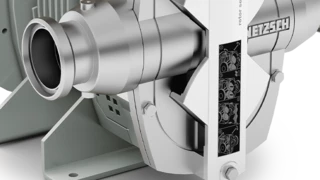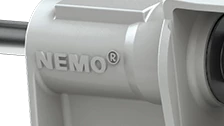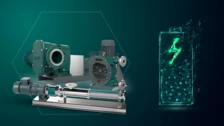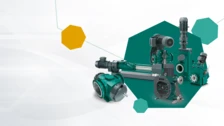NETZSCHicon
Differential Pressure
The differential pressure describes the pressure difference between the inlet and outlet of a pump. It is an essential variable in pump technology and indicates the pressure increase a pump must provide to deliver the medium through the system.
The differential pressure is usually given in bar (bar) or Pascal (Pa). The amount of differential pressure depends on various factors. These include the properties of the pumped medium, the delivery height and the resistors in the piping system. The higher the viscosity of the medium or the proportion of solids, the more pressure the pump has to apply. Bottlenecks, bends or filters installed in the piping can also increase the required differential pressure. If the differential pressure is too low, the medium will not be pumped efficiently, while if the pressure is too high, unnecessary energy consumption and increased wear may result. It is therefore important to choose a pump optimally matched to the pressure conditions of the respective application.





